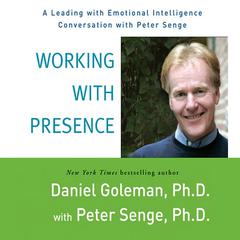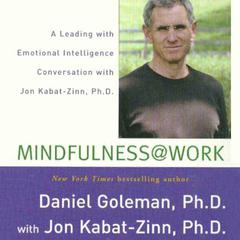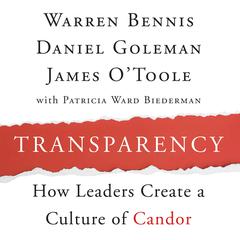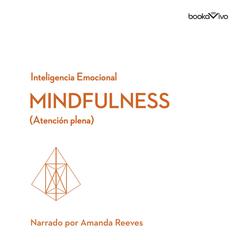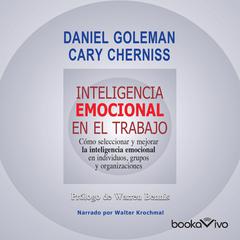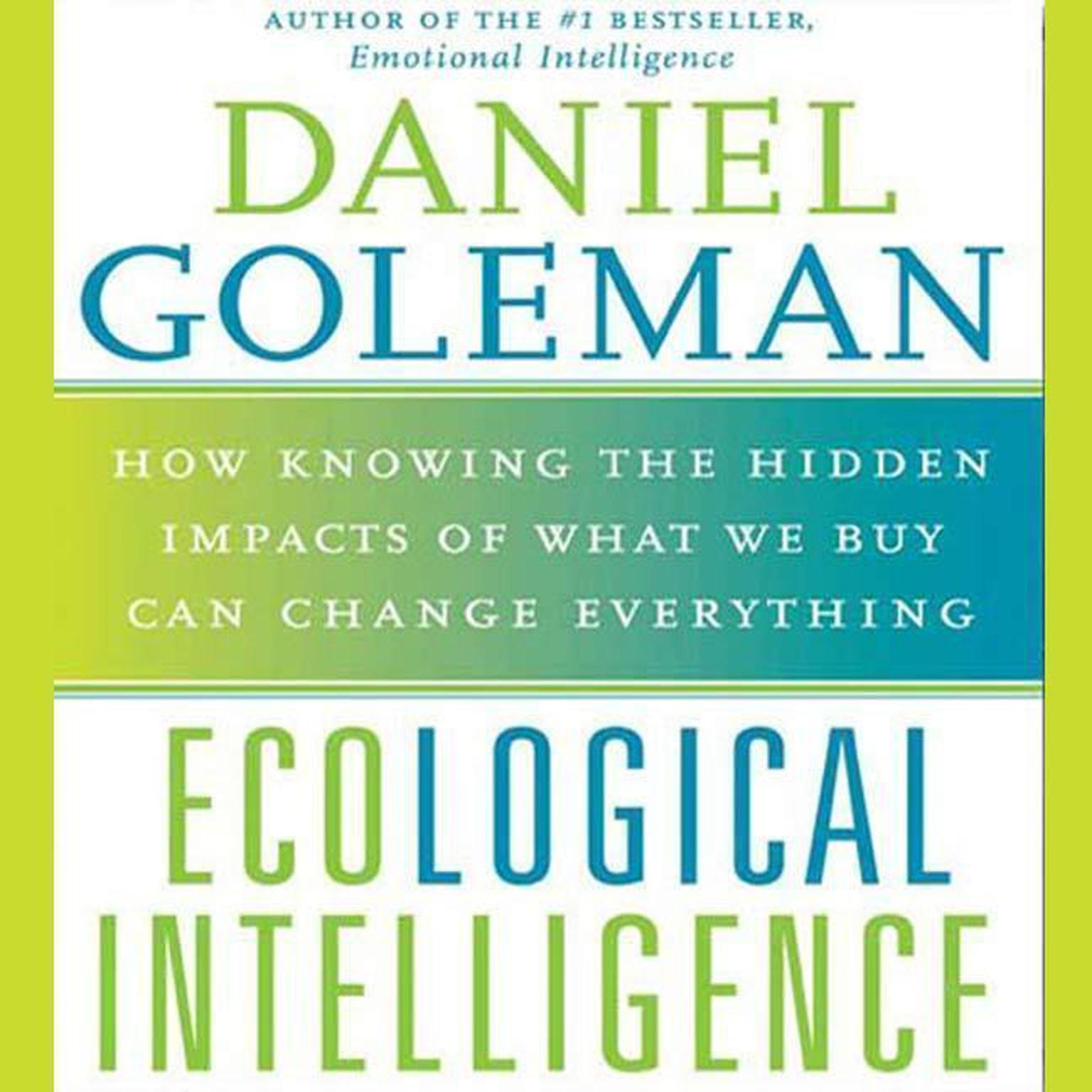 Play Audiobook Sample
Play Audiobook Sample
Ecological Intelligence (Abridged): How Knowing the Hidden Impacts of What We Buy Can Change Everything Audiobook
 Play Audiobook Sample
Play Audiobook Sample
Quick Stats About this Audiobook
Total Audiobook Chapters:
Longest Chapter Length:
Shortest Chapter Length:
Average Chapter Length:
Audiobooks by this Author:
Publisher Description
In Ecological Intelligence: How Knowing the Hidden Impacts of What We Buy Can Change Everything, Daniel Goleman recasts the uproar over global warming and the assault of man-made toxins into our bodies in terms of the collective self-deception which both created this crisis and holds a key to its solution. Ecological Intelligence argues that "green" labels and recycling programs may do more harm than good by feeding a vital lie, lulling us into the illusion that we are doing enough already while ignoring the adverse impact of the far vaster proportion of what we buy and do. The book brings a psychologist's insights into the world of commerce, arguing for radical transparency--tracking every substantial impact over the life cycle of an item, from manufacture to daily use, to disposal--and surfacing those impacts at the point of purchase. The movement toward such transparency augurs a day when the free market will operate in public interest.
Download and start listening now!
"Probably the most valuable lesson I learned from reading Ecological Intelligence is just how important it is for us, the consumers to close "The Information Gap" We can't rely on the government to pass laws or expect business to voluntarily change their ways while sacrificing profits. It's up to the consumer to learn which companies are acting responsibly and which are not. And then the answer is clear; support the ones acting responsibly and boycott the ones hurting the environment. If these irresponsible companies loose money, they're much more apt to change their ways."
— Kevin (4 out of 5 stars)
Awards
-
Among longlisted titles for AudioFile Best Voices, 2009
Ecological Intelligence Listener Reviews
-
" This book started off with a lot of potential, and I was really interested in what the author had to say. A few chapters in, though, it started to get boring and repetitive. I would say it's worth a skim through at least, but unfortunately it was not the most captivating book I've ever read on the subject. There are much better books out there about ecological impact that are much more successfully executed. "
— Sarah, 2/10/2014 -
" I am passionate about this subject. Ecological intelligence is the future if we can get access to all the data out there. The book was dry at times, yet I learned a lot when I could focus my attention on it. It's worth reading if you want to learn more about the things you buy. "
— Elaina, 2/10/2014 -
" Goleman shares his view of the impact of radical transparency in retailing. He discusses Life Cycle Assessment, developing products for consumers that go beyond a profitable impact for the company, and consumers knowledge of product development that begins to change purchase behaviors. While I knew some of the points addressed in the book, Goleman provides a good analysis/overview of the current ecological impact of industry and what options consumers have to minimize their ecological impact. "
— Chris, 1/25/2014 -
" It's just incredible how many important topics the author has touched and how well he has kept the balance between 'too many details' and 'just a sentence and move on' "
— Vladimir, 1/25/2014 -
" I'm not sure if I wasn't in the mood for this, or if I just didn't like it, only got through the first audio disk and had no urge to listen to more. "
— Chade66, 1/18/2014 -
" A great book. His thesis is that we can save the world withing the system of capitalism by making things like low ecological impact, lack of toxins, and ethical labor practices as selling points for products. "
— Tim, 1/17/2014 -
" Dude, I think you meant to say "Algorithm", not "Logarithm". "
— Tom, 1/13/2014 -
" Very thought provoking! I plan to put this into practice. "
— Rita, 12/28/2013 -
" A must read if you consider yourself an environmentalist/consumer. Apparently even when we think we're doing the right thing.....we actually don't know what we're doing. Very provocative and interesting. "
— Maureen, 12/10/2013 -
" An important look at the frequently unseen side of business. "
— Stefano, 11/18/2013 -
" Was quite interesting and had actual application instead of theory only. I got more out of it by having book club discussion with my former Economics and Environmental Econ professor, but a very appropriate book to consider consumption and alternatives to consumption behavior in the US. "
— Abbi, 10/24/2013 -
" Gives an eye-opening look at how we create large environmental footprints even when we're trying to do the opposite. "
— Sandra, 10/23/2013 -
" Ecological Intelligence: How Knowing the Hidden Impacts of What We Buy Can Change Everything by Daniel Goleman was chosen by Soundview Executive Book Summaries as one of the Top 30 Business Books of 2010. "
— Soundview, 8/30/2013 -
" It's up to us to be the change.... "
— Steve, 8/1/2012 -
" Depressing...only because I don't always have the energy to take on more eco-worries. But it's great info. "
— Jenny, 4/9/2012 -
" Managed to be long-winded while giving barely any information. Also read as a book-long advertisement for a particular product. "
— Bon, 2/14/2012 -
" A tough, slogging read. So there are zillions of hidden impacts, but now what?? "
— Carol, 10/13/2011 -
" Interesting... at least turned me onto Good Guide, which has convinced us to change a few of our product choices. "
— Rae, 7/13/2011 -
" A little bit boring but made very good points and talked about interesting eco-concerns that we should all know about. The most important thing was that the author presented information without bias and covered issues from many points of view. "
— Sarah, 3/9/2011 -
" Was quite interesting and had actual application instead of theory only. I got more out of it by having book club discussion with my former Economics and Environmental Econ professor, but a very appropriate book to consider consumption and alternatives to consumption behavior in the US. "
— Abbi, 11/2/2010 -
" Dude, I think you meant to say "Algorithm", not "Logarithm". "
— Tom, 11/1/2010 -
" Very thought provoking! I plan to put this into practice. "
— Rita, 6/13/2010 -
" I got a few good things out of it - but it could have been organized better. Repeated many things, too. Sources not sourced. "
— Keihly, 6/3/2010
About Daniel Goleman
Daniel Goleman, a former science journalist for the New York Times, is the author of thirteen books and lectures frequently to professional groups and business audiences and on college campuses. He cofounded the Collaborative for Academic, Social, and Emotional Learning at the Yale University Child Studies Center, now at the University of Illinois, at Chicago.
















